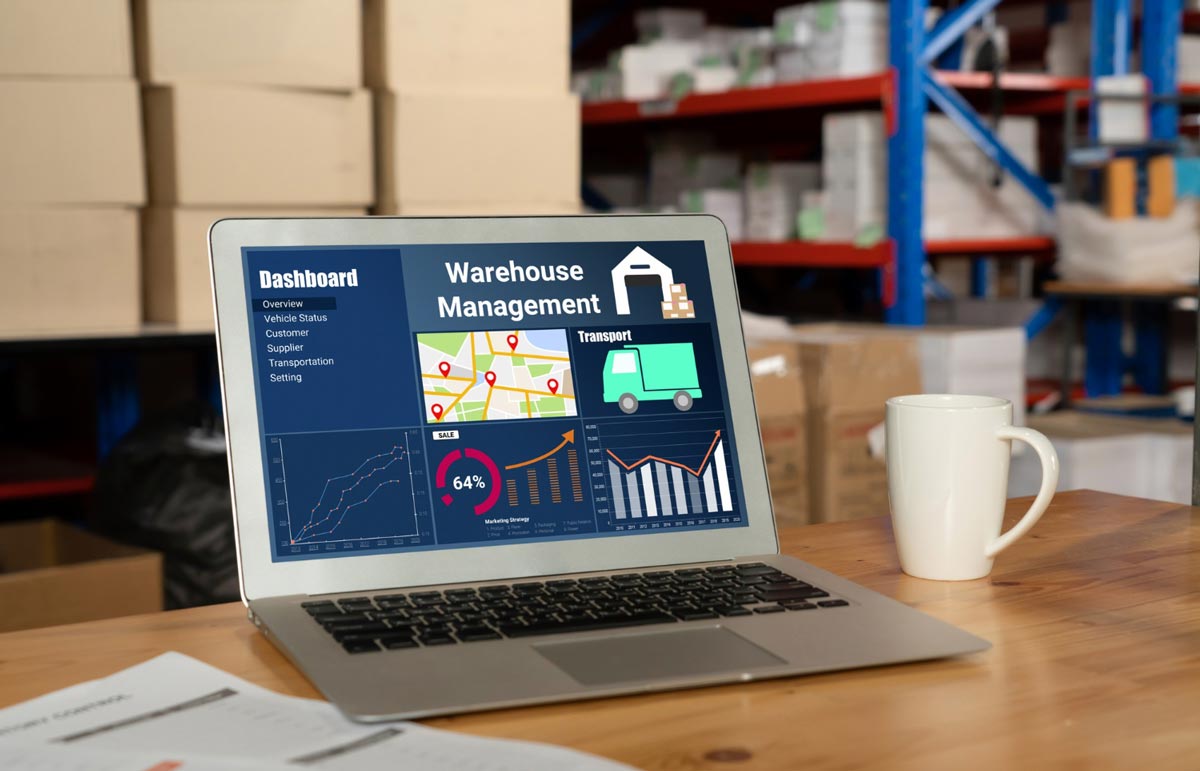
How “Smart Warehouses” Could Help Tame Global Supply Chain Issues
The world is more connected than ever before. Unfortunately, that has led to serious supply chain issues. A recession halfway across the world can impact us today; we need to be agile and pivot. We need to do more with less.
Smart warehouses make this possible. Smart warehouses can refine, optimize and react—in ways that sometimes even humans cannot. Let’s look at how smart warehouses can help us manage some major global supply chain issues.
Major issues in supply chain management
What global supply chain issues are impacting us today? There is an array of them, some more temporary than others.
- Environmental. The need to protect our environment is becoming increasingly important. Smart warehouses can help by reducing energy consumption, using renewable energy sources and recycling materials. Environmental issues are impacting the supplies and resources available.
- Economic Volatility. The global economy is constantly changing, and this can lead to volatile supply and demand. Smart warehouses help by providing real-time data that can be used to make informed decisions.
- Rapid Technology Change. Technology is changing at an ever-faster pace, and this can lead to obsolescence. Smart warehouses help by using state-of-the-art technology that can be quickly updated as new technologies emerge.
- Increasing Regulations. Regulations around the world are constantly changing, and this can make it difficult to comply. Smart warehouses can help by providing data that can be used to ensure compliance.
- Political Uncertainty. The political landscape is constantly changing, and this can lead to instability. Smart warehouses help by using data to understand trends and predict changes.
- Globalization. The world is becoming more interconnected, which also increases competitiveness. You are now in competition with suppliers from everywhere, and you need to source from everywhere.
The way that the world operates has changed. Not only are we globalized, but we’re also learning that we need to be more flexible and agile with our supply chain management.
And there are ways that smart warehouses can help.
Erratic, just-in-time logistics
A big issue in the supply chain is erratic, just-in-time logistics. Just-in-time inventory and shipping worked to keep things lean when things were in high supply. But now, if there’s a shortage due to an unexpected event, it disrupts the flow of goods throughout the world. Empty store shelves during the COVID-19 crisis were very visible consequences of a world that runs on JIT supply.
Smart warehouses can react to these issues faster, by identifying potential bottlenecks and risk factors based on data and analysis. A smart warehouse may be able to identify that there are logistical issues coming up the chain, and route products more effectively.
High transportation costs
The cost of transportation is one of the biggest issues facing supply chains today. With the price of oil volatility, it’s hard to predict what shipping will cost from one month to the next.
Smart warehouses can be located closer to population centers, which cuts down on transportation costs. They can also use data to optimize routes and choose the most efficient mode of transportation.
Inventory management

Another big issue is inventory management. Overproduction can tie up cash flow, while underproduction can lead to lost sales. But it’s not just about volume, it’s about sourcing. Today, an organization might need to source a single product from multiple vendors to keep up with supplies.
Inventory management systems can automatically determine which stock is running low and source it from the fastest or most affordable vendor, based on context.
Supply chain complexity
The supply chain is more complex than ever before. With the rise of e-commerce, there are more touch points and more potential for things to go wrong.
Smart warehouses can help by using data to map out the supply chain. They can identify potential risks and vulnerabilities, and put protocols in place to mitigate them.
Counterfeit goods
According to the International Chamber of Commerce, counterfeiting is a $1.7 trillion industry. That’s 10% of all global trade.
Smart warehouses can help by using data to track products and ensure that they are authentic. They can also put protocols in place to prevent counterfeit goods from entering the supply chain.
As supplies run lower, counterfeit goods will only become more prolific. Companies will have to protect themselves to ensure the quality of their products.
Difficulty procuring labor
The war for talent is heating up, and it’s becoming increasingly difficult to find and retain good workers. Many issues within the supply chain are currently being impacted by difficulties getting and retaining labor.
Smart warehouses can help by using data to track employee productivity and identify training needs. They can also implement automation to take on some of the more tedious tasks
Decreased ROIs
ROI is important to any business, but it’s especially important in the supply chain. With the margins as thin as they are, a small decrease in ROI can have a big impact on the bottom line.
Smart warehouses can help by using data to track ROI and optimize the supply chain. They can identify areas where costs can be cut and make recommendations accordingly.
Lack of sustainability
Whether B2B or B2C, consumers are becoming more concerned with sustainability. With the amount of waste that’s produced and the emissions from transportation, it can be difficult to make a case for sustainability within the logistics, shipping and transportation industries.
Smart warehouses can help by using data to track sustainability metrics. They can identify areas where the supply chain is not sustainable and make recommendations accordingly. Smart warehouses even create an audit trail that can be used to assess environmental impact.
Improve Your Warehousing with Smart Warehouse Management
These are just some of the issues that companies face when it comes to managing their supply chains. Supply chain difficulties are the new normal—and everyone has to be prepared for the consequences if they want to remain competitive.
Smart technologies and automation provide a more resilient inventory, logistics and shipping stream. For organizations that want to improve and future-proof their operations, the answer is smart warehousing.
But that doesn’t mean you need to make the transition alone. Contact Red River to learn more about how a smart warehouse system could impact your operations.

written by
Corrin Jones
Corrin Jones is the Director of Digital Demand Generation. With over ten years of experience, she specializes in creating content and executing campaigns to drive growth and revenue. Connect with Corrin on LinkedIn.




